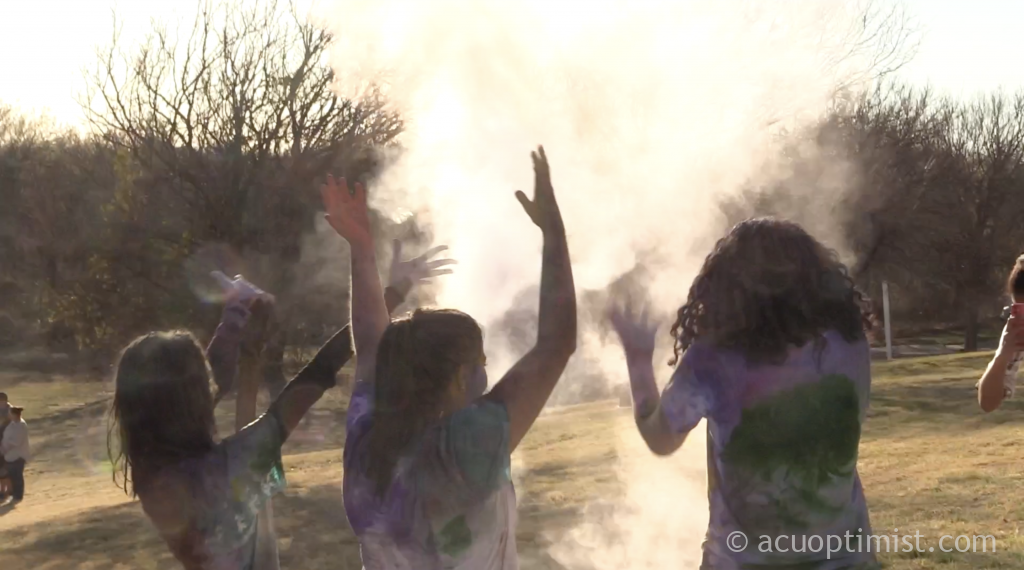Few pursue hospitality with as much fervor as ACU junior Yajat Patel. The trait was instilled in him from birth and embraced by him in life. He longs to see multicultural connection thrive in a Christian community – especially as a Hindu.
His parents, Zarna Mehta and Yogeshkumar Patel, immigrated from India to the United States in the 1980s searching for prosperity. They became doctors and eventually met in Chicago. In 2001, Yajat was born. The family moved to Abilene two years later.
Zarna and Yogeshkumar carried their culture and religion to America, and Yajat proudly represents it in Abilene. The accounting and finance major is co-founder of the Indian Culture Association at ACU.
Being Hindu is foundational to Yajat’s identity. He grew up worshiping, praying and eating as a Hindu. Hinduism, however, was not all he grew up knowing. The vast majority of students at schools he attended were Christian.
Yajat was part of a diverse friend group in middle and high school. He starts listing them, not by name, but ethnicity: two Indian, two Kazakhs Indians, one white, one Chinese. They became Yajat’s multicultural family.
“Some of my friends, they see me more as a brother, because they know I care for them way too much.”
Even though he appreciates the different cultures, “I didn’t feel the need to convert,” Yajat says. “I believe in Hinduism.” Simple.
Of all the Hindu virtues, Yajat cherishes hospitality the most. His embrace of this principle was caused by a tragedy in his personal life.
His sophomore year of high school, one of Yajat’s friends committed suicide. The devastation pushed him out of introversion and into deepened relationships. He was constantly checking up on people, inviting them to his house and offering them rides. He wouldn’t let another friend’s struggles go unnoticed.
Hospitality.
Yajat was also caring for someone at home. Earlier his sophomore year, his mother was diagnosed with breast cancer. Bilateral. Stage three advanced.
She was diagnosed in September, but his friends didn’t know until December. He thought burdening them with his problems would be contrary to his role as caregiver.
His mother is now cancer-free, but remnants of the fight linger. Cancer invaded a lymph node in Zarna’s neck, requiring a transplant from her leg. Making her way from the bedroom to the kitchen, she has to sit down three times.
It’s difficult for her to walk, so Yajat does it for her. He’s responsible for running errands and getting his mother anywhere she needs to be.
“She never is a burden. All I see is a change of roles. She cared for me up to a certain point. Now I have to care for her,” he says.
Hospitality.
Attending ACU allows Yajat to live at home and care for his mom while earning a degree. But his commuter-status left him craving community.
Yajat was pledging a now disbanded fraternity his sophomore year until another fraternity killed a goat. “For Hindus, goats are sacred,” Yajat said. Unsettled by and uncertain about fraternity life, Yajat stopped pledging. He instead built his own community.
Yajat began the Hindu Culture Association (HCA) after seeing a lack of Asian and, specifically, Indian representation on campus.
“My heart runs when I see that I can express my culture, and even more when I can express my religion, on campus,” Yajat says.
Co-founder and vice president of the club, Vihasi Gandhi, a senior accounting and finance major from Gujarat, India, says Yajat has a vision she could help bring to reality.
“He wants to stand for the fact that on a Christian campus, there are [other] groups that can be represented. You don’t necessarily have to be Christian to go to ACU,” Vihasi says.
HCA hosts traditional Hindu celebrations, such as Holi Festival and Diwali. People of all religions and ethnicities are invited, even encouraged to attend.
Hospitality.
Dr. Omar Palafox, a Bible professor and ex-missionary in Mexico, taught Yajat in class. The course explored Latino and Hispanic authors, and Hindu culture was a source for comparative discussion.
“Being a missionary, I want to talk about interfaith conversations,” Palafox says. “Eventually we all want that. We want to be heard.”
Palafox says ACU’s growing religious diversity calls for greater attention to be given to positive interfaith conversations. Yajat agrees.
He raises his leveled hands, one above his head and the other at his chest. “Don’t come to us seeing yourself as the upper level.” He brings his hands together, meeting at his eyeline. “Come here like this.”
To appeal to a broader group of students, HCA was renamed the Indian Culture Association. Since the change, Yajat has noticed an increased attendance at events. He is determined to keep the club growing.
“I need to do this, because if I do, I can change how ACU sees us,” he says, expressing his desire to usher in a new era of belonging for people of minority religions, and emphasizing a value that both Christians and Hindus hold:
Hospitality.

